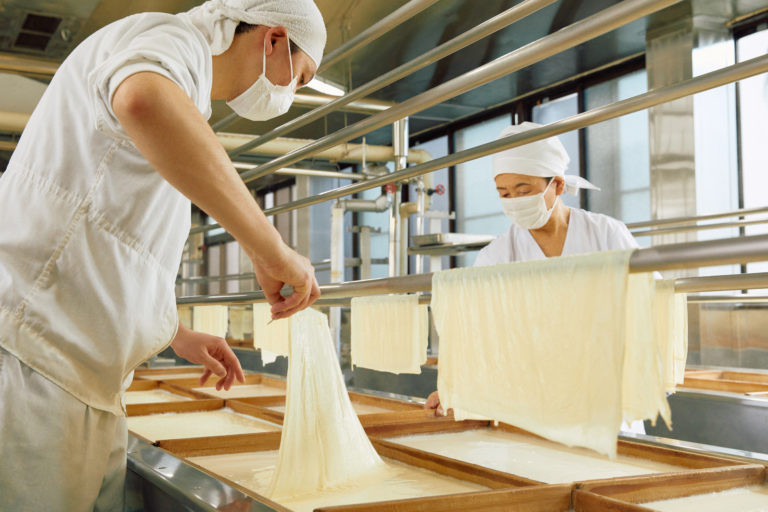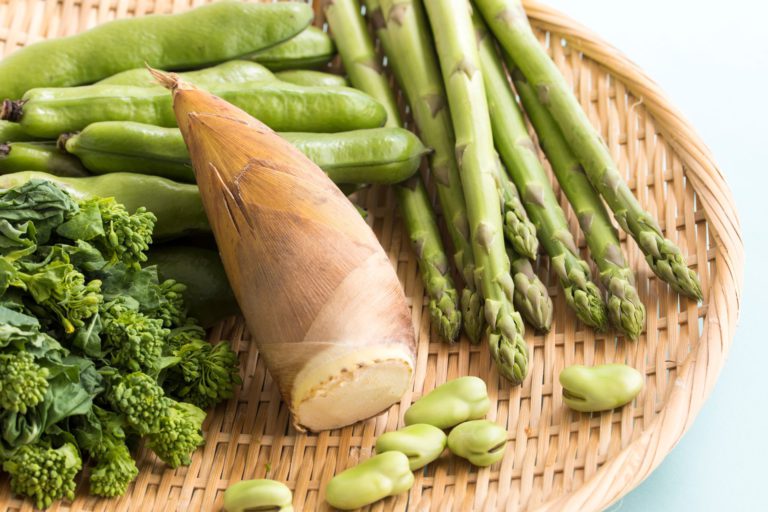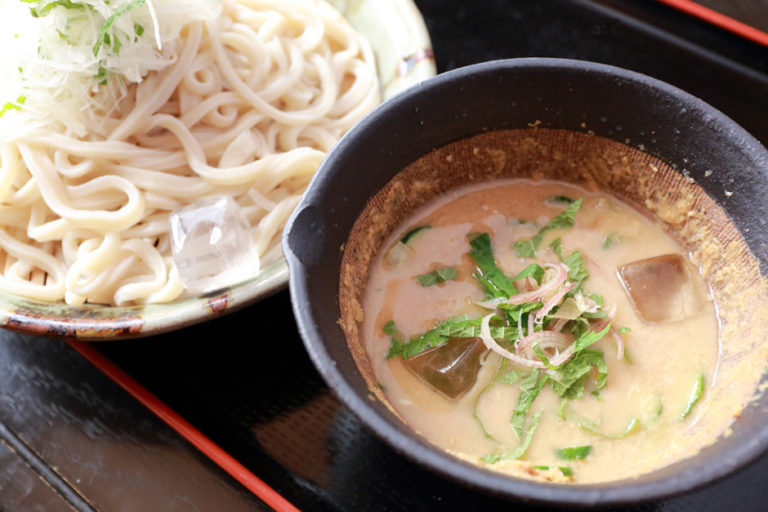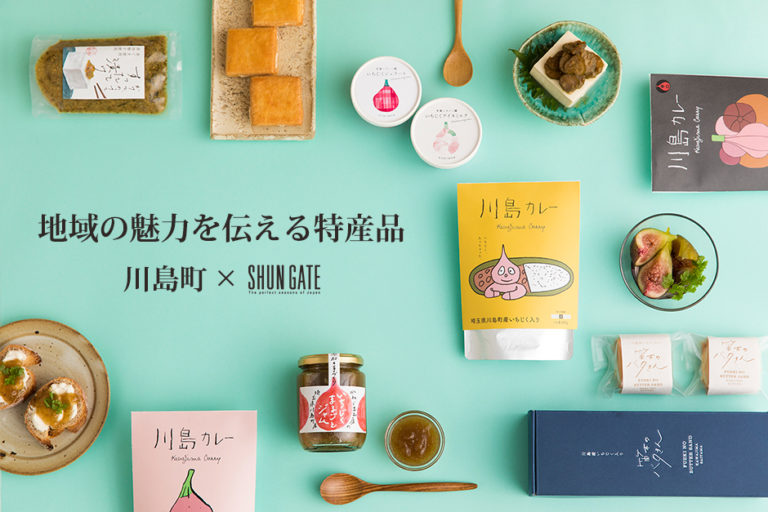Japanese Menma Saves Untamed Bamboo Groves. Nobeoka Menma Made of Off-Spec Bamboo Shoots
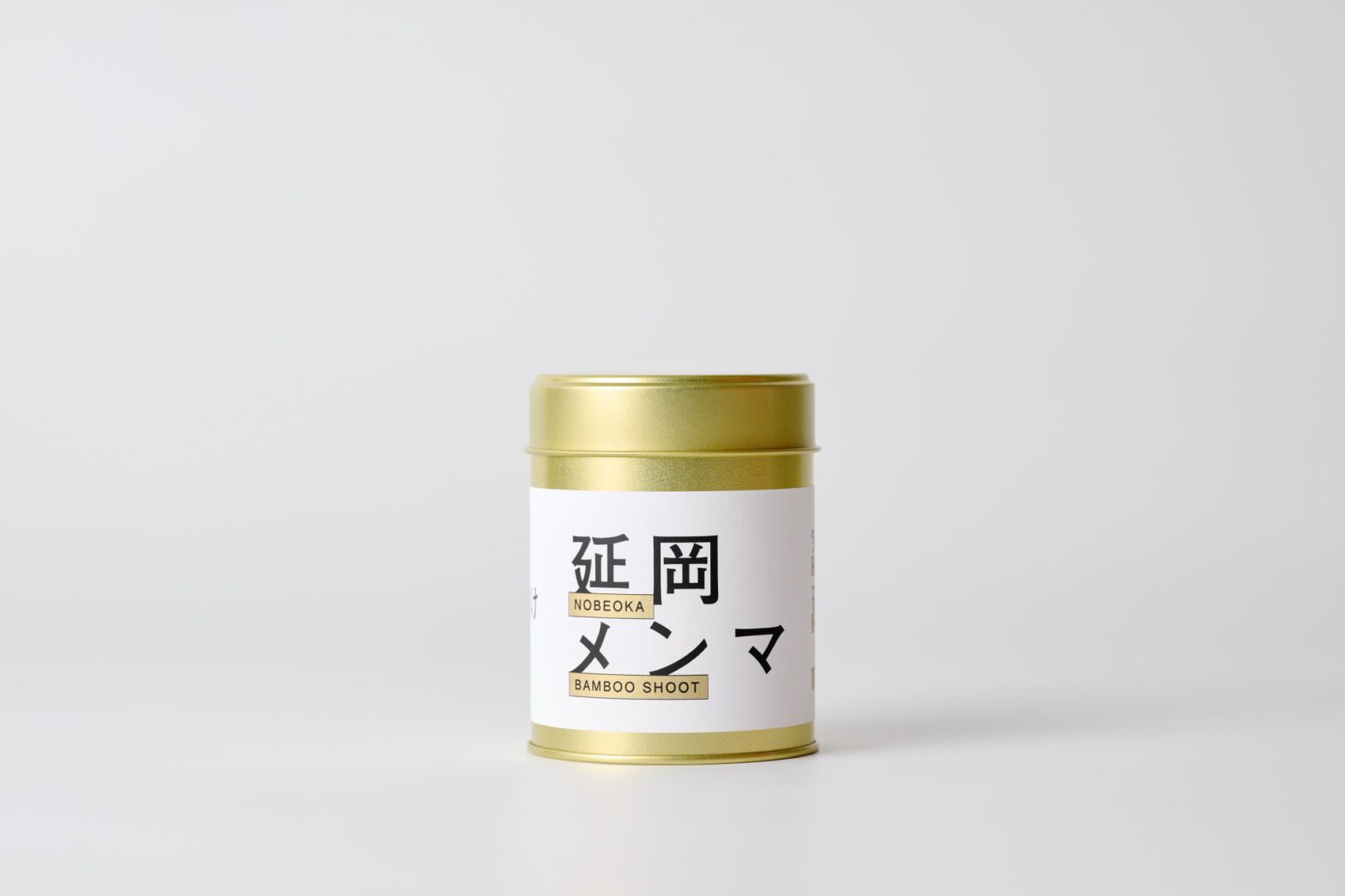
<Here is what makes Nobeoka Menma noteworthy>
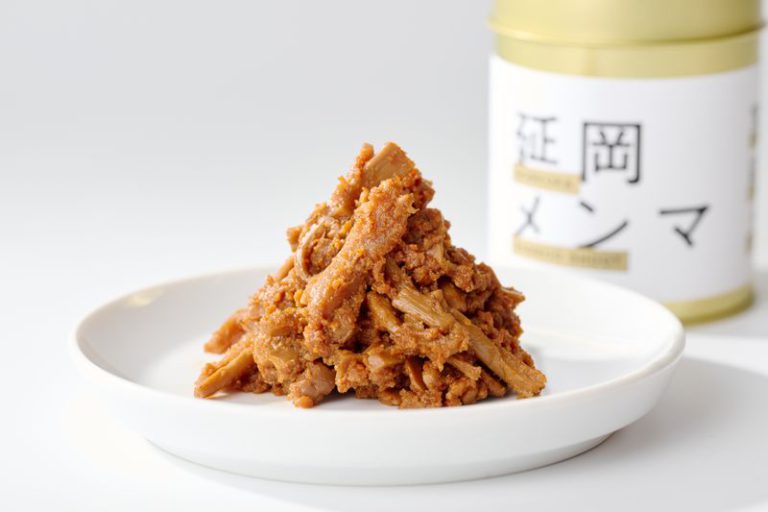
– Created to solve neglected bamboo grove issues.
– Made using off-spec bamboo shoots, chili peppers, and miso produced in Nobeoka.
– Quality product served in first class in-flight catering.
Making menma out of overgrown bamboo shoots
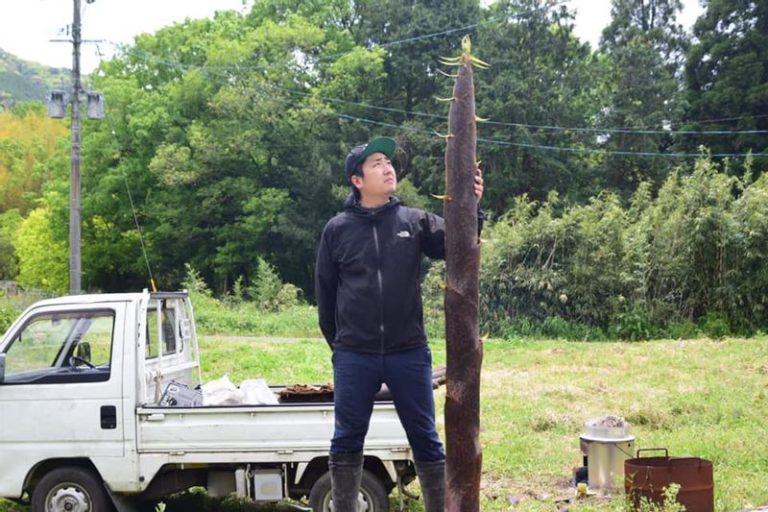
Taro Ebara, head of LOCAL BAMBOO INC., which developed Nobeoka Menma, moved back to Nobeoka from Tokyo 4 years ago to succeed in his grandparents’ farming business. He witnessed neglected bamboo groves ravaging fields passed down from his ancestors.
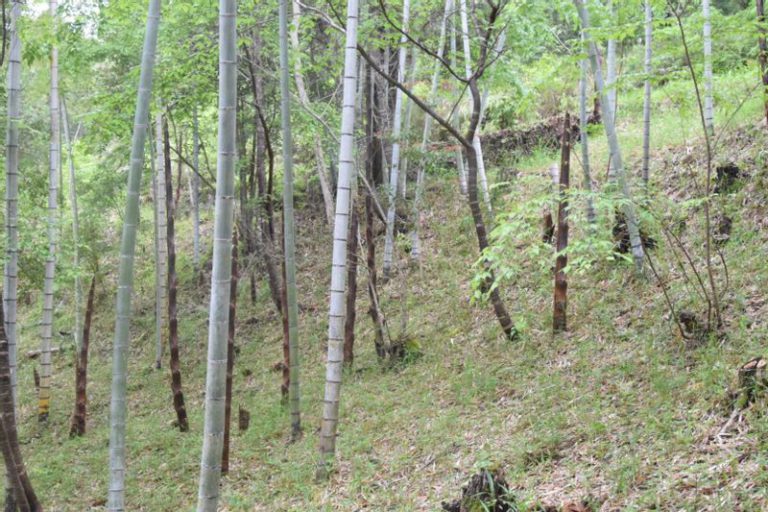
He recalls, “Bamboo grows incredibly fast, up to a meter per day, surpassing what humans can manage. It blocks sunlight—preventing other trees from growing—and water from shallow-grown bamboo can cause landslides. Forests with neglected bamboo groves like that are inaccessible to people and often become a home for animals that cause damage.”
When researching ways to deal with overgrown bamboo shoots, known as yochiku, Ebara discovered references indicating they can be eaten as menma.
He explains, “One way of utilizing off-spec bamboo shoots is menma. Most of the menma in the market is made in China or Taiwan, and only 1% is domestically produced. I thought, ‘This is it,’ and started making menma.”
Help each other using local produce
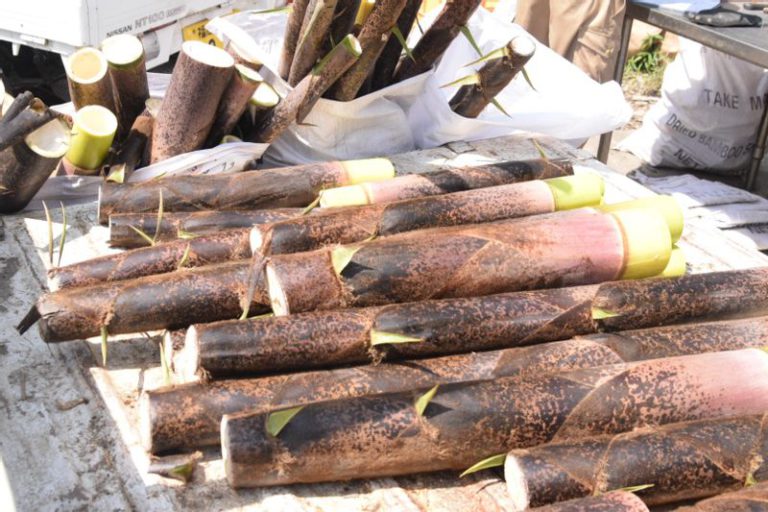
Yochiku that makes menma had little or no value, to begin with. Buying it from farmers with bamboo groves and commodifying it creates a cycle whereby money is passed on to the farmers, enabling them to maintain their bamboo groves.
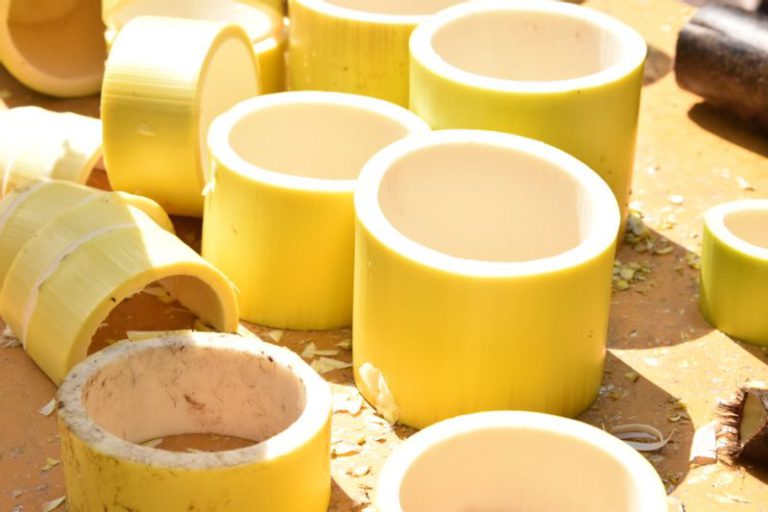
“Fortunately, we have a business partnership with JA Nobeoka. JA originally had two shipping standards. One was for fruit and vegetables, like those served in traditional Japanese restaurants. The other was for processing and sold in supermarkets as boiled products. There, we created a new shipping standard for menma, and we now buy it at almost double the price it used to cost when it was considered substandard for processing,” says Ebara.
Apart from yochiku, other ingredients used for menma include miso from the Watanabe Miso Soy Sauce Brewery and a local brand vegetable called Shichimangoku Togarashi (chili pepper).
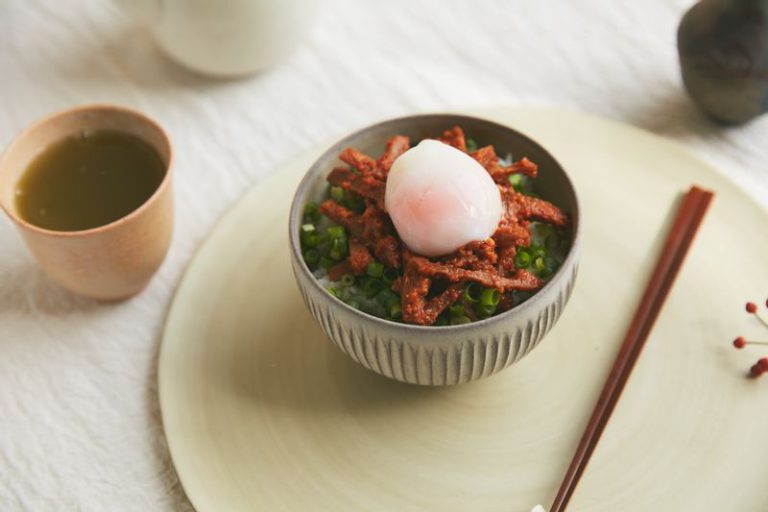
Ebara comments, “Menma can be used in any way depending on the seasoning. I aimed to create a product to solve the problem through eating, so I decided to season it to suit Japanese staple foods like rice, bread, and pasta. And since it’s called Nobeoka Menma, I first made a spicy miso seasoning with local miso and chili to help everyone by using local products.”
To raise Japanese menma’s value
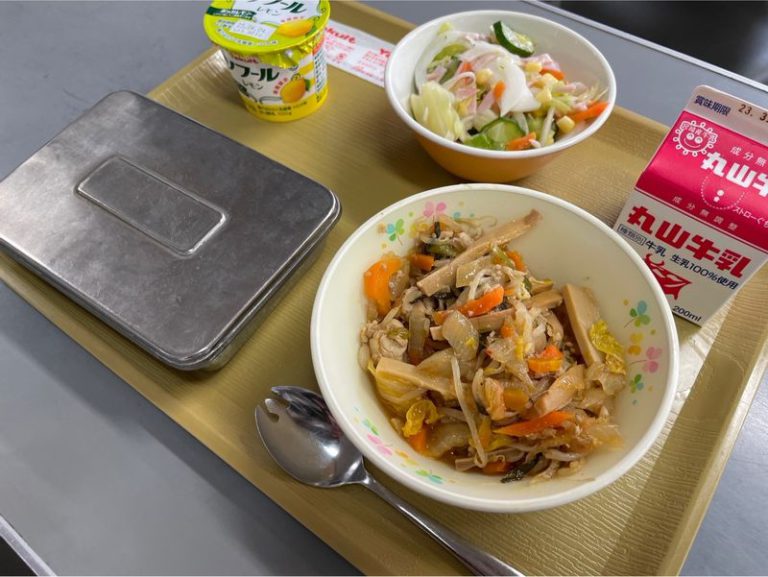
Nobeoka Menma is now also served in school lunches. Most people are unaware of the bamboo grove problem or that menma is made from bamboo.
Ebara explains, “An astonishing number of people are unaware of this, even though it’s their local resource. When we give it to kids during school lunches, we take 5 minutes to do a menma quiz, asking them what menma is made of, and they think it’s a mushroom. So, I explain with drawings why we’re making menma and that Nobeoka is struggling to deal with problems caused by untamed bamboo groves.”
It has also been used in ANA’s first-class in-flight meals for two consecutive years.
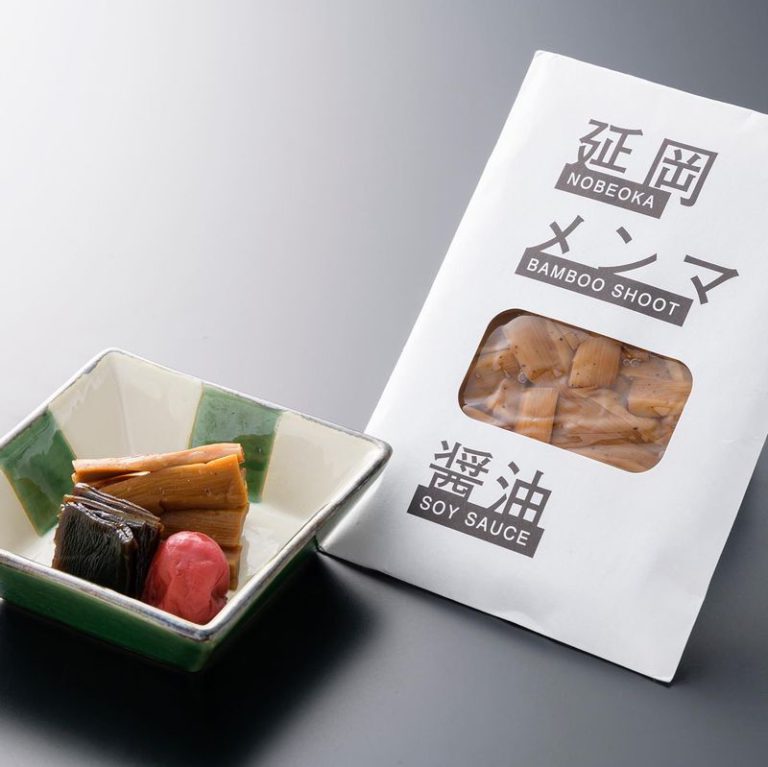
Ebara also uses menma to help communities in Nobeoka and other areas in Japan suffering from bamboo grove issues.
He elaborates, “Our insights are put out in the open. For example, Taragi, Kumamoto Prefecture and Beppu, Oita Prefecture are also making menma. We plan to launch two products next year.”
Japanese menma is steadily spreading along with Ebara’s and others’ know-how. It will not be long before a ray of hope is shed on unattended bamboo groves across Japan.

